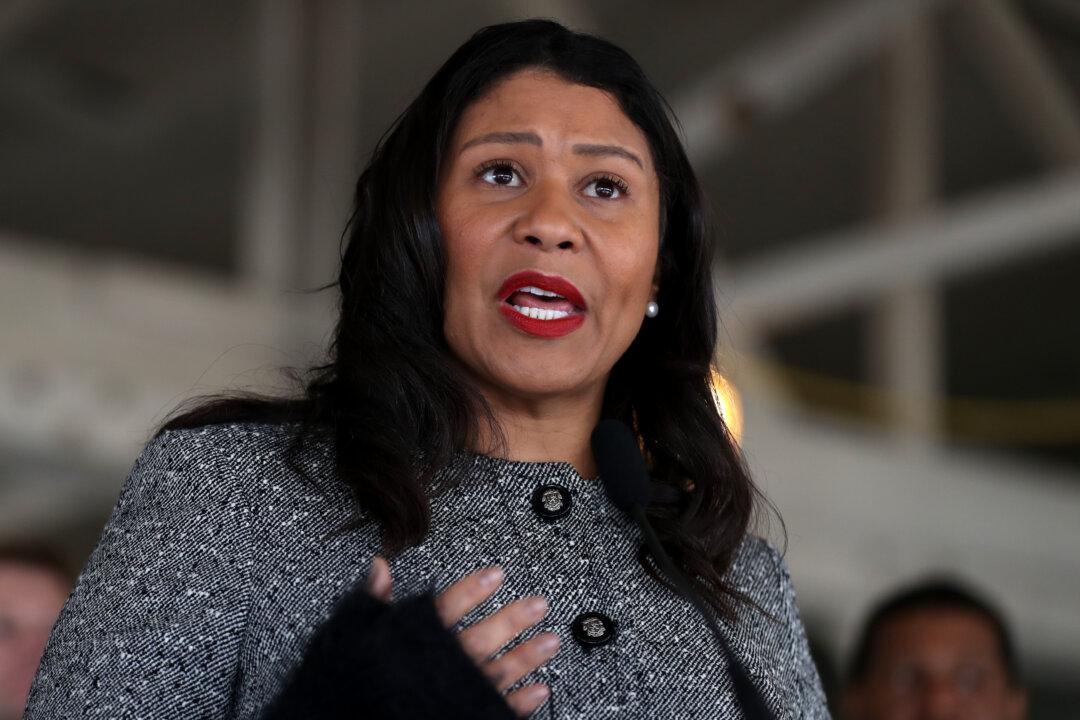The Department of Justice (DOJ) on Friday called on San Francisco Mayor London Breed to end the city’s “one congregant” rule and raise the allowable capacity in churches, alleging that current pandemic-related policy “suggests hostility to religious people and the free exercise of religion.”
Assistant Attorney General Eric S. Dreiband and U.S. Attorney David Anderson of the Northern District of California, in a letter (pdf) denounced as “draconian” San Francisco’s restrictions regarding attending houses of worship, which generally let just one congregant inside at a time. Exceptions to the rule, according to the San Francisco order (pdf), are that a parent or guardian may be accompanied by their minor children or that a person with a disability may bring their caregiver.





